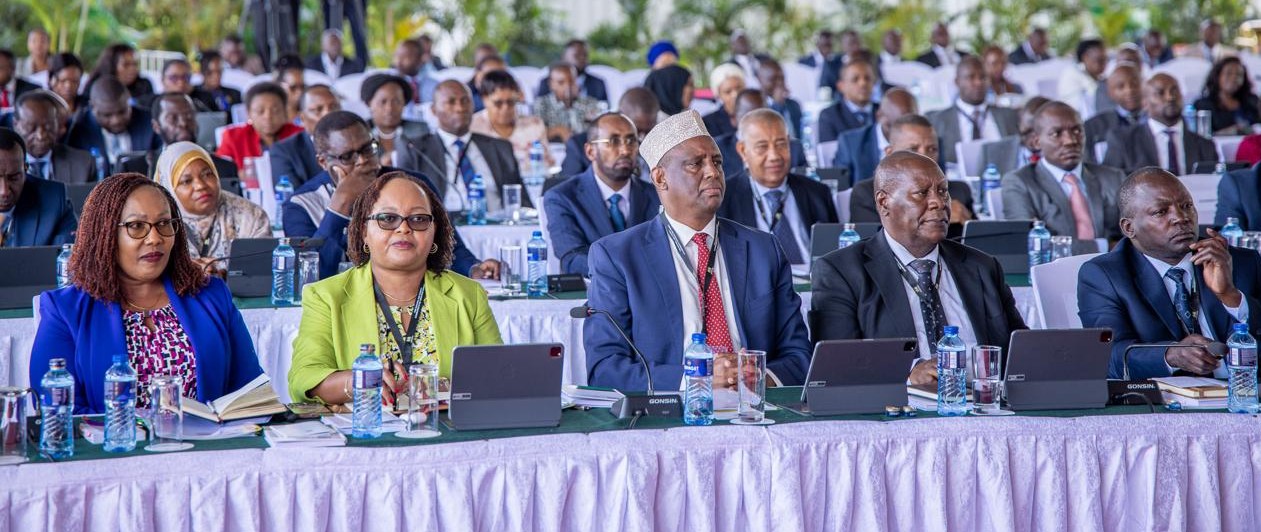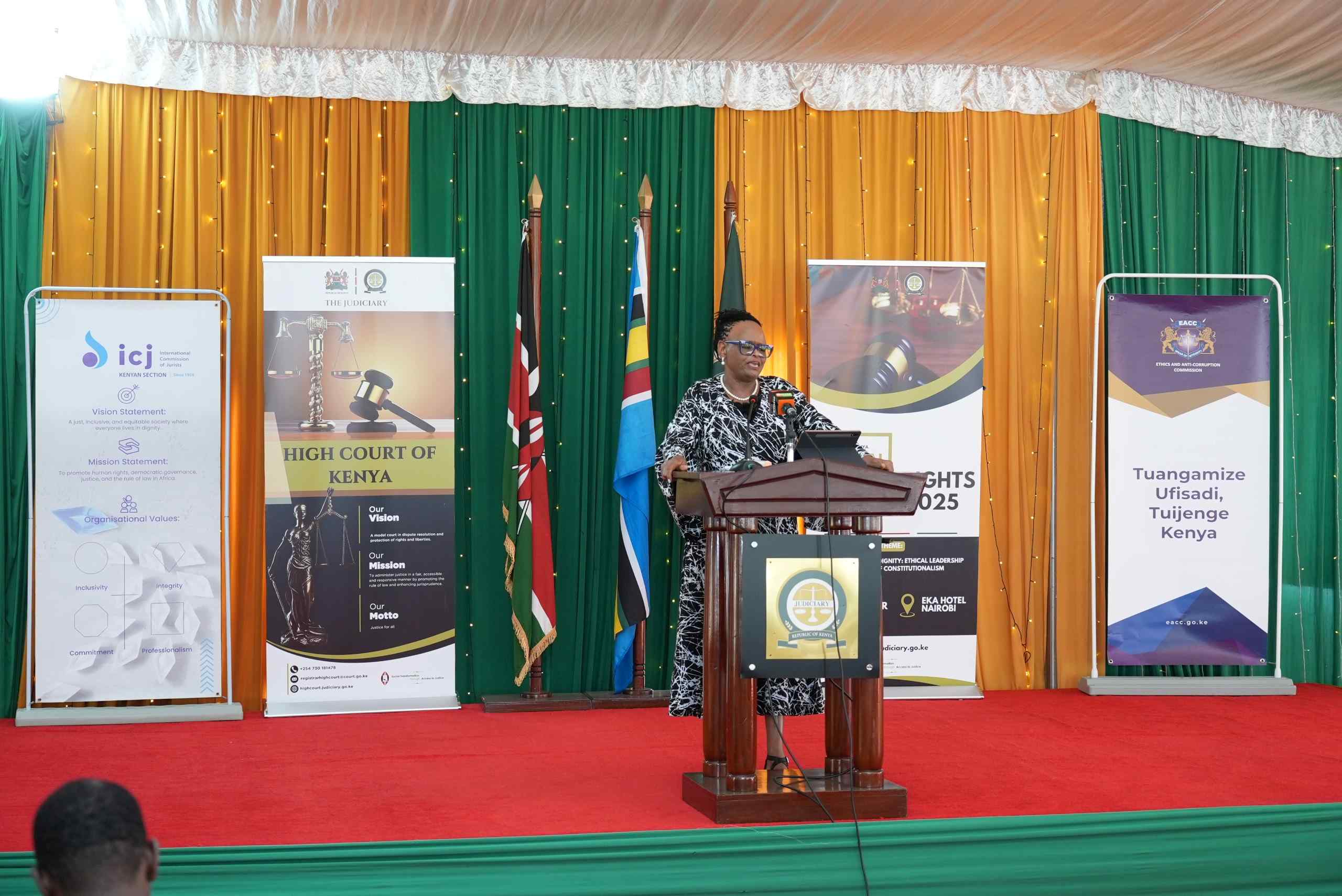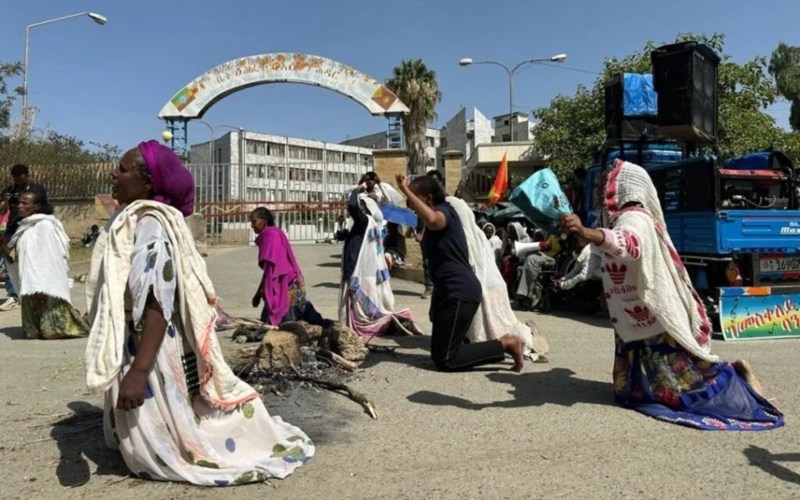Nairobi County at crossroads: Mismanagement, politics, and struggle for accountability

Former Town Clerk Philip Kisia traced Nairobi’s challenges to shifts in revenue management and governance structures.
Nairobi’s governance continues to face complex challenges, with leaders and former officials pointing to financial mismanagement, political interference, and inconsistent administrative continuity as key obstacles to the city’s progress.
Despite being Kenya’s economic hub, Nairobi struggles to efficiently convert resources into services for its residents, leaving both elected officials and the public frustrated.
More To Read
- Nairobi orders staff to submit academic, professional records by January 15
- City Hall opens six-month window to regularise non-compliant properties
- Governor Sakaja unveils six-borough structure to enhance service delivery
- City Hall moves to recognise urban farmers in policy review
- How Riruta’s upgrade to Level IV hospital is transforming healthcare across Dagoreti
- City residents say Nairobi's illegal billboard cleanup favours some areas over others
Last month, the political honeymoon between Governor Johnson Sakaja and Nairobi MCAs appeared to be over after MCAs voiced deep frustrations over stalled projects, bursary delays, and the collapse of the Ward Development Fund.
This led to calls of impeachment against the governor and his deputy, that was intervened by President William Ruto and former Prime Minister Raila Odinga.
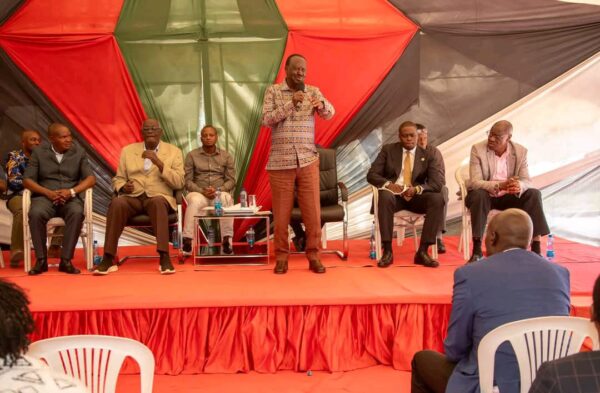 ODM leader Raila Odinga addresses ODM Nairobi MCAs at the Jaramogi Oginga Odinga Foundation in Nairobi on September 2, 2025. (Photo: Handout)
ODM leader Raila Odinga addresses ODM Nairobi MCAs at the Jaramogi Oginga Odinga Foundation in Nairobi on September 2, 2025. (Photo: Handout)
Speaking during NTV’s The Last Word, Kileleshwa MCA Robert Alai highlighted concerns over revenue transparency and employee management.
“What the public hears that Sh13 billion is collected as revenue is just creative accounting. There is no evidence that more than Sh9 billion has ever been collected in Nairobi, apart from during former Governor Evans Kidero’s time,” he said.
Alai added that the challenge lies not just in revenue collection but also in the clarity of how funds are used.
“If you are being allocated this much because you hear the frustration of getting the equitable share, and you use it all to pay the salaries, what brought up the need for 19,000 employees? Not everybody who is there is in the job because they qualified for it; they are there because there’s a political godfather who brought them,” he explained.
The ODM legislator also stressed that Nairobi requires special attention due to its unique economic and political position.
“Nairobi, like we say in the City Hall, whether we call it the hole in the city, what happens is that not everybody who is there is in the job because they qualified for it,” he said.
He further argued that city counties such as Nakuru, Mombasa, Kisumu, and Eldoret deserve tailored approaches given their specific needs.
On the administrative side, Nairobi County's CEC for Finance Charles Kerich emphasised the problem of frequent leadership changes.
“After five years, the governor is not reelected, and the whole team goes… A new one comes and starts from zero,” he said.
The CEC boss noted that while governors and their teams change, permanent directors and chief officers should be empowered to provide continuity.
“Those are the people who should now be empowered, because that is the continuity of a county government, whether a governor is changed or not,” he said.
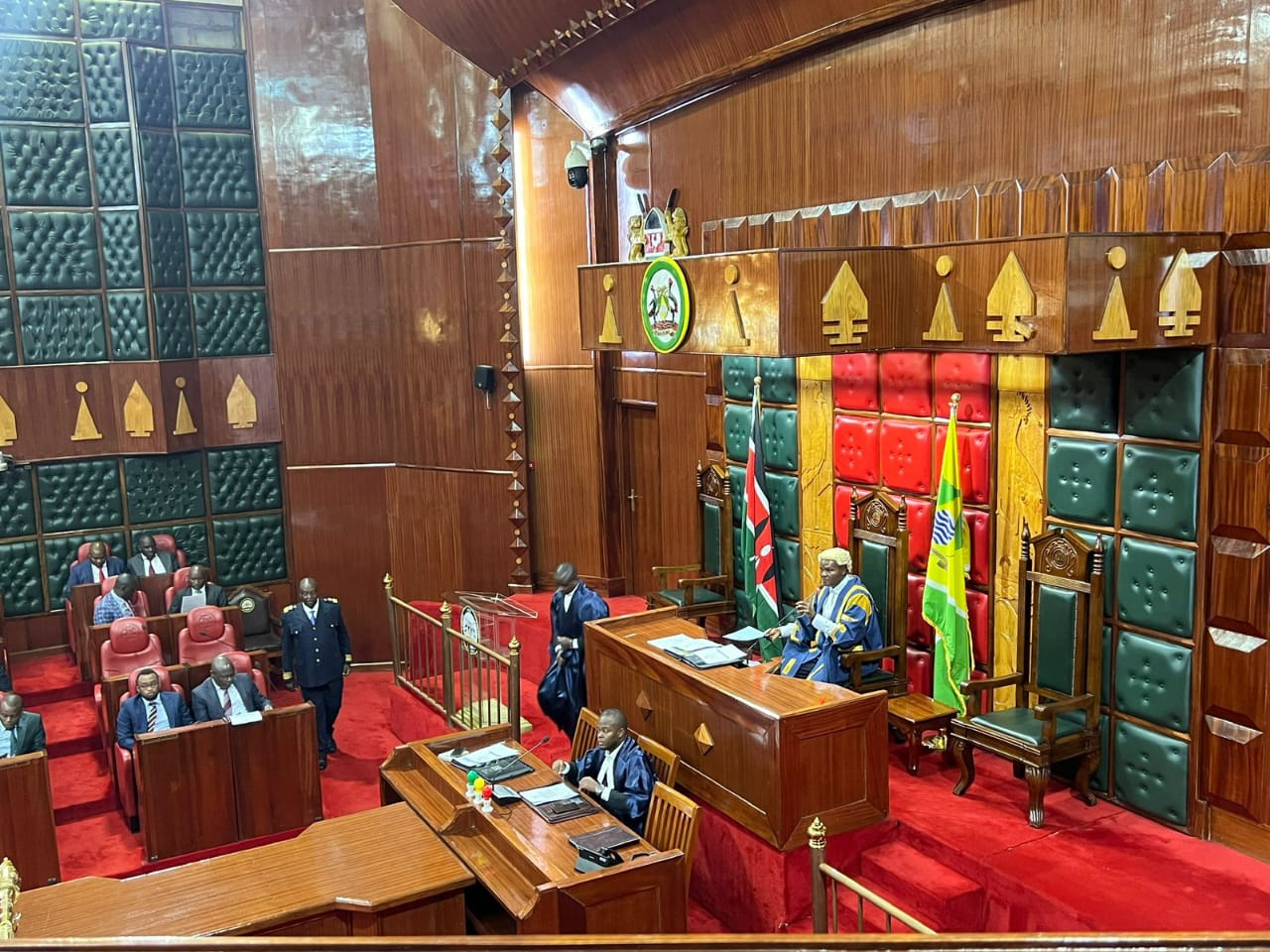 Nairobi County Assembly Speaker Ken Ng'ondi presiding over a plenary session on June 24, 2025. (Photo: Maureen Kinyanjui)
Nairobi County Assembly Speaker Ken Ng'ondi presiding over a plenary session on June 24, 2025. (Photo: Maureen Kinyanjui)
Kerich also highlighted the importance of collaboration with the national government, particularly for infrastructure projects.
“The best situation would be where the county does what it is capable of doing consistently over a while, but the national government also steps in,” Kerich said. He suggested that Nairobi could have dual recognition: as a county and as the Capital Territory of Kenya.
Former Town Clerk Philip Kisia traced Nairobi’s challenges to shifts in revenue management and governance structures.
“During our times, we were able to run this city using our own revenue… about Sh12 billion. And if I look at the last transfer we got from the national government, it was less than Sh3 billion,” he said.
Kisia pointed out that while the county now handles more functions, many of them are non-revenue-generating. “Most of them are consuming functions,” he noted.
Kisia also highlighted the importance of management reforms and planning, explaining that when they got into office, they first instituted institutional reforms.
“We identified areas that required reform. We succeeded by automating building plan approvals… By the time we were leaving, we had actually started doing test runs on parking. We left a master plan for this city that was supposed to guide the development for the next 25 years,” he said, lamenting that the plan has largely been ignored by successive administrations.
The former Town Clerk emphasised that Nairobi’s challenges are not rooted in the governance structure but in management.
Top Stories Today


